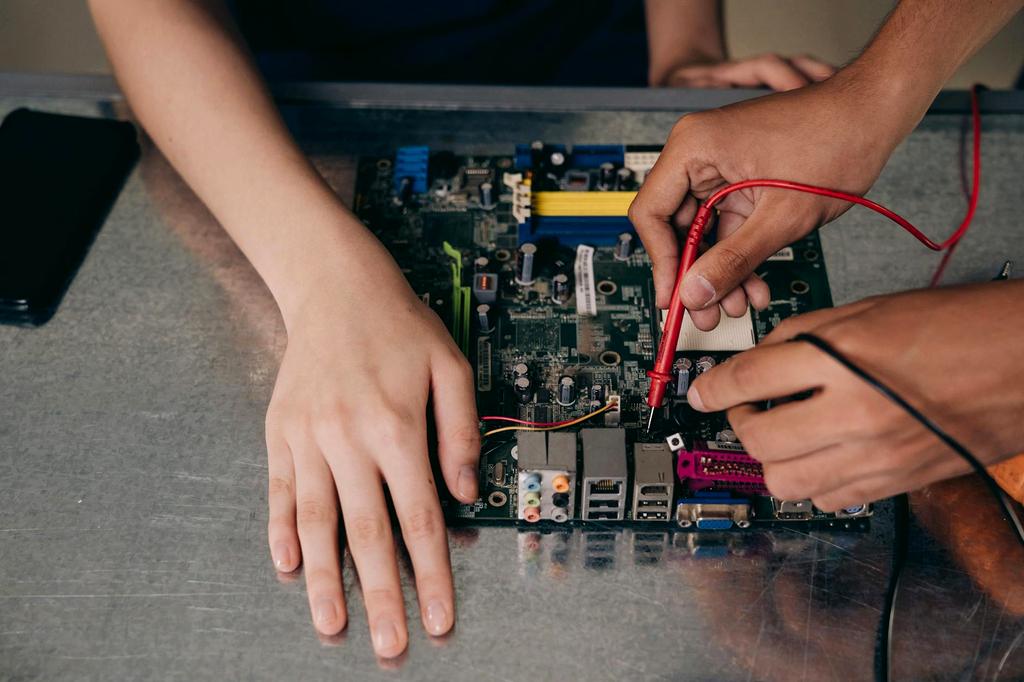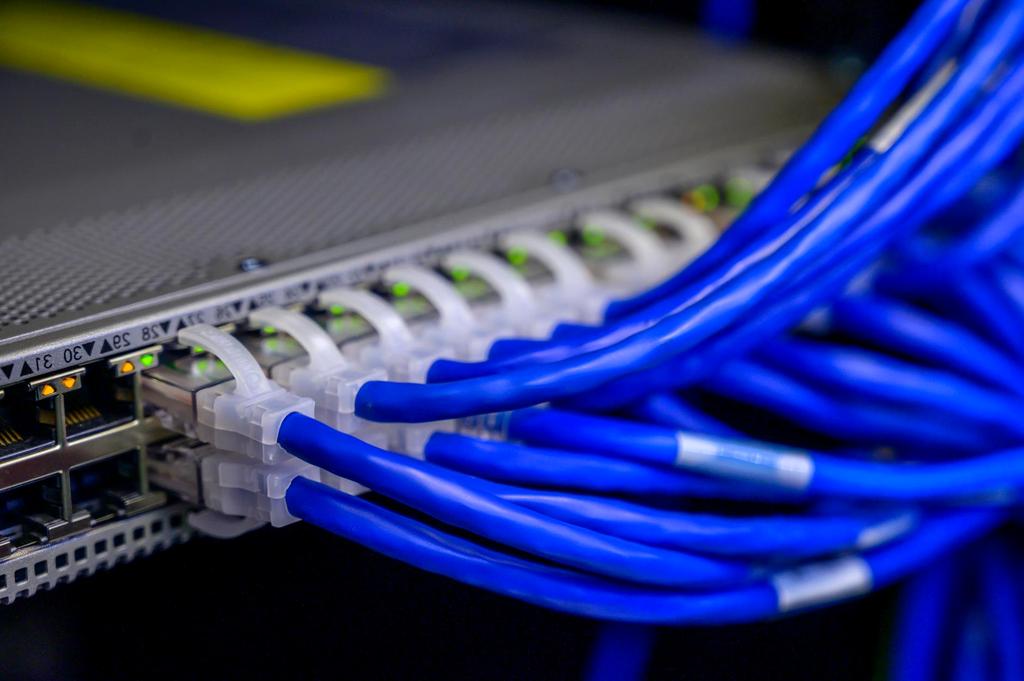Complete IT Infrastructure Management
From strategic planning to daily operations, we provide end-to-end technology solutions that keep your business running smoothly. Our comprehensive approach ensures every aspect of your IT environment is optimized, secure, and future-ready.

Network Infrastructure
Design, implement, and maintain robust network architectures that support your business operations. Our network specialists ensure optimal performance, scalability, and reliability across all your connected systems and devices.

Cybersecurity Solutions
Protect your business from evolving cyber threats with our multi-layered security approach. We implement advanced threat detection, endpoint protection, and security awareness training to safeguard your digital assets and sensitive data.

Cloud Migration & Management
Seamlessly transition your business to the cloud with our expert migration services. We help you leverage cloud technologies to improve flexibility, reduce costs, and enhance collaboration while maintaining security and compliance standards.

Data Backup & Recovery
Ensure business continuity with our comprehensive backup and disaster recovery solutions. We implement automated backup systems, test recovery procedures regularly, and provide rapid restoration services to minimize downtime and data loss.
Ready to Transform Your IT Infrastructure?
Schedule a free consultation with our IT experts to discuss your specific needs and discover how our comprehensive solutions can drive your business forward.
What Our Clients Say About Us
Discover how our IT support services have transformed businesses across various industries. From startups to established companies, our clients consistently praise our expertise, reliability, and commitment to their success.
The transformation of our IT infrastructure has been remarkable. Before partnering with fucodiy, we experienced frequent system crashes and security vulnerabilities that cost us valuable time and money. Their proactive monitoring and rapid response team have eliminated our downtime entirely. The cloud migration they orchestrated has improved our team's collaboration and productivity by 300%. Their cybersecurity implementation gives us peace of mind knowing our client data is protected.
As a law firm handling sensitive client information, security is our top priority. fucodiy implemented a comprehensive cybersecurity framework that exceeds industry standards. Their team conducted thorough security audits, established multi-factor authentication, and provided extensive staff training on security protocols. The automated backup system they installed saved us during a recent ransomware attempt. Their 24/7 monitoring caught the threat before any damage occurred.
Running a manufacturing business requires reliable technology to manage inventory, production schedules, and quality control. fucodiy modernized our entire IT infrastructure, integrating our legacy systems with cloud-based solutions seamlessly. Their network optimization reduced our data processing time by 75%, and the predictive maintenance system they implemented has prevented costly equipment failures. The ROI has been exceptional.
Starting a tech startup with limited resources, we needed an IT partner who could scale with our growth. fucodiy provided flexible solutions that adapted to our changing needs without breaking our budget. They set up our development environment, implemented DevOps practices, and established robust security protocols. Their expertise in emerging technologies has been invaluable as we've expanded from 5 to 45 employees in just two years.
Managing multiple healthcare clinics requires seamless integration of patient management systems, compliance with HIPAA regulations, and absolute reliability. fucodiy implemented a centralized IT infrastructure that connects all our locations while maintaining the highest security standards. Their disaster recovery plan ensured we maintained operations during the recent power outages, and their compliance expertise keeps us audit-ready at all times.
Our retail chain struggled with outdated point-of-sale systems and inventory management across 12 locations. fucodiy designed a unified solution that integrated our e-commerce platform with in-store operations, providing real-time inventory tracking and customer insights. The mobile device management they implemented allows our staff to assist customers anywhere in the store, significantly improving the shopping experience and increasing sales by 35%.
Transform Your Business Technology
Ready to experience seamless IT operations? Connect with our experts to discuss your specific needs and discover how our tailored solutions can accelerate your business growth. Get a free consultation and personalized technology roadmap within 24 hours.
Rapid Implementation
Get your IT infrastructure optimized and running efficiently within days, not months. Our streamlined deployment process minimizes disruption to your daily operations.
Enterprise-Grade Security
Protect your business with military-grade encryption, advanced threat detection, and comprehensive security protocols that exceed industry standards.
Scalable Growth Solutions
Future-proof your technology investment with solutions that seamlessly scale as your business expands, ensuring consistent performance at every stage.
24/7 Expert Support
Access our certified IT professionals anytime, anywhere. Our dedicated support team ensures your systems maintain peak performance around the clock.
Start Your IT Transformation
Free consultation • No obligation • Instant response
"fucodiy transformed our entire IT infrastructure in just two weeks. The consultation was incredibly thorough, and their team delivered exactly what they promised. Our productivity increased by 200% within the first month."







